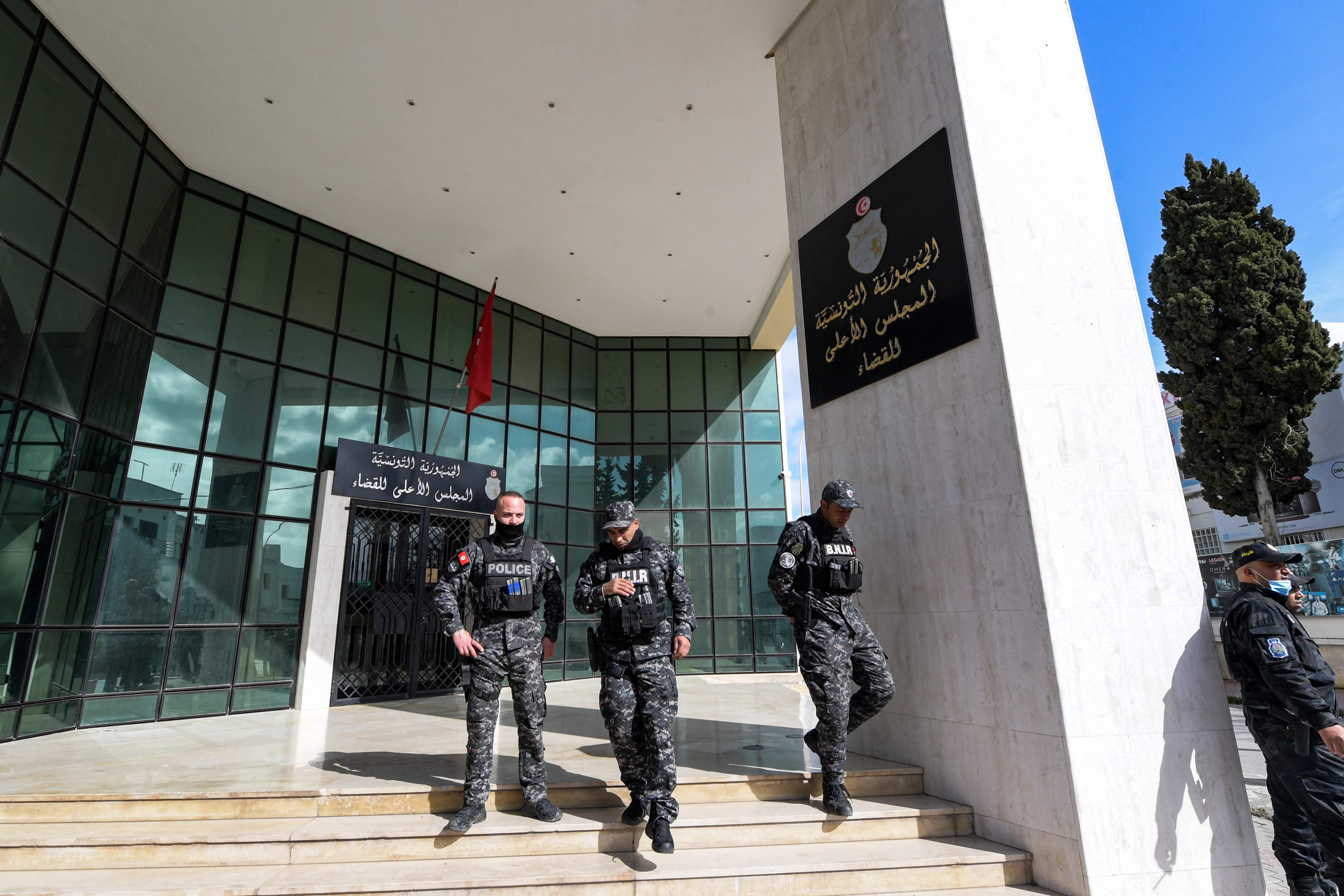Tunisia’s democracy is under threat – where is the international response?
Populist president, Kais Saied, announced a state of emergency last year and seized absolute control of both the executive and legislature, as Bel Trew explains


It was said so many times that it became a cliché, but Tunisia really was the sole success story of the 2011 Arab Spring uprisings that, in many parts of the region, facilitated more authoritarian regimes or seemingly endless war.
At least until summer 2021. In a move that took the world by surprise, the country’s independent, populist president, Kais Saied, announced a state of emergency in July and seized absolute control of both the executive and legislative wings of state. He suspended the constitution, fired the prime minister, froze parliament and dismissed the government. He repeatedly said his actions were intended to save Tunisia from collapse, and were a response to popular calls for change after mass protests against poverty, corruption and coronavirus restrictions.
The former law professor – who, perhaps ironically, actually used to teach constitutional law – was accused of shattering Tunisia’s constitution by doing this. Both experts and opponents, particularly those in the moderate Islamist party Ennahda that dominated Tunisia’s political arena for years, said he was stage-managing a coup.
This week he went one step further, cementing his grip over the judiciary and saying appointments had in the past been granted “according to loyalties”. First he announced he would dissolve Tunisia’s Supreme Judicial Council, a body widely praised when it was created post-revolution, which is tasked with appointing the nation’s judges and guaranteeing judicial independence.
Then, on Sunday, Saied issued a decree creating a new temporary council, with no fixed term, to oversee the judiciary. The decree confirmed he can dismiss judges and block their promotion, and also that judges had no right to go on strike – a pointed reference to Supreme Judicial Council members and other judges shutting down many courts for two days last week.
While the international community largely allowed Saied’s initial actions last summer to pass unchecked, the move on the Supreme Judicial Council drew the ire of several countries, the European Union and UN human rights chief Michelle Bachelet, who said it “seriously undermines the rule of law”.
“This has been a big step in the wrong direction,” Bachelet added, describing it as “the latest development in a worrying trajectory”.
Experts were also alarmed. Said Benarbia, director of the International Commission of Jurists’ Middle East and North Africa Programme, warned Saied was demonstrating “his resolve to remove the last line of defence to his one-man-rule in Tunisia”.
To keep up to speed with all the latest opinions and comment, sign up to our free weekly Voices Dispatches newsletter by clicking here
Monica Marks, an expert on Tunisia and professor of Middle East politics at New York University Abu Dhabi, said he was “stamping out the last remaining ‘obnoxious’ patches of resistance”, and that she believed civil society and the media will be next. “We are seeing consolidation of power,” she told The Independent.
Certainly, there are few independent institutions left in the country he does not control. One is the elections body, widely heralded as one of the greatest achievements of the revolution, which some fear will not last. The other is the extremely powerful Tunisian General Labour Union or UGTT, which has about a million members and could be a potentially powerful opponent to Saied.
In January, the UGTT slammed the “road map” for Tunisia’s future Saied released in December, saying that while setting dates for elections this year was positive it “does not break with individual rule and exclusion”. So far, except for statements, they have taken no solid action. It’s no coincidence Saied met with the UGTT’s chief last month, no doubt to get them on board.
Marks said that while the international community has “woken up” this week, releasing a slew of messages condemning the move on the judiciary, the lack of international response to the initial actions in July had made the situation worse. She added that continued silence will only make it even harder.
“One would hope that western actors would put the same effort into protecting the only democratic experiment in the Arab world as they would complaining about the absence of democracy in that same part of the world. They have been mystifyingly complacent.”






Join our commenting forum
Join thought-provoking conversations, follow other Independent readers and see their replies
Comments